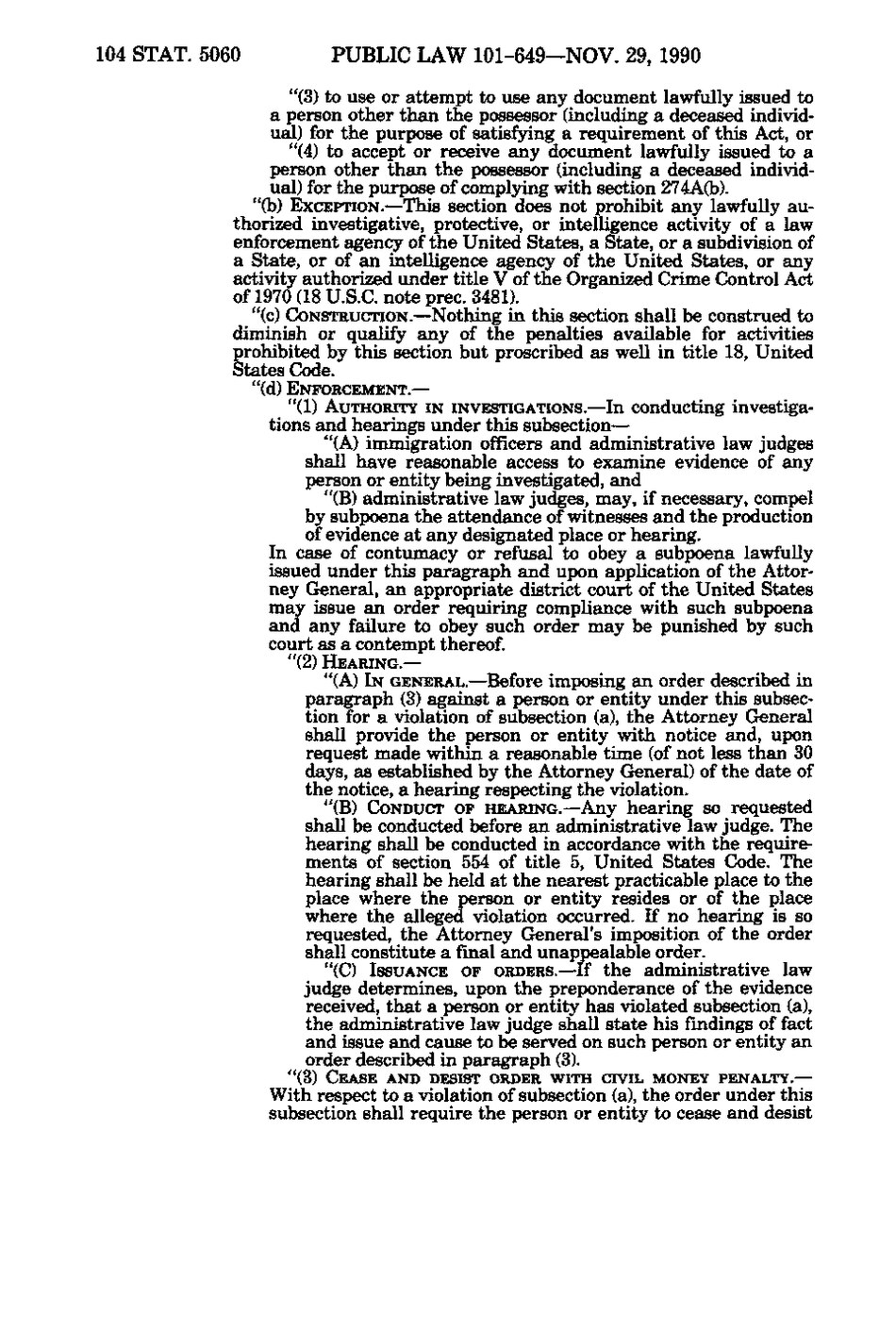104 STAT. 5060 PUBLIC LAW 101-649—NOV. 29, 1990 "(3) to use or attempt to use any document lawfully issued to a person other than the possessor (including a deceased individual) for the purpose of satisfying a requirement of this Act, or "(4) to accept or receive any document lawfully issued to a person other than the possessor (including a deceased individual) for the purpose of complying with section 274A(b). "(b) EXCEPTION,—This section does not prohibit any lawfully authorized investigative, protective, or intelligence activity of a law enforcement agency of the United States, a State, or a subdivision of a State, or of an intelligence agency of the United States, or any activity authorized under title V of the Organized Crime Control Act of 1970 (18 U.S.C. note prec. 3481). "(c) CONSTRUCTION.—Nothing in this section shall be construed to diminish or qualify any of the penalties available for activities prohibited by this section but proscribed as well in title 18, United States Code. "(d) ENFORCEMENT. — "(1) AUTHORITY IN INVESTIGATIONS. —In conducting investigations and hearings under this subsection— "(A) immigration officers and administrative law judges shall have reasonable access to examine evidence of any person or entity being investigated, and "(B) administrative law judges, may, if necessary, compel by subpoena the attendance of witnesses and the production of evidence at any designated place or hearing. In case of contumacy or refusal to obey a subpoena lawfully issued under this paragraph and upon application of the Attorney General, an appropriate district court of the United States may issue an order requiring compliance with such subpoena and any failure to obey such order may be punished by such court as a contempt thereof. "(2) HEARING.— "(A) IN GENERAL. —Before imposing an order described in paragraph (3) against a person or entity under this subsection for a violation of subsection (a), the Attorney General shall provide the person or entity with notice and, upon request made within a reasonable time (of not less than 30 days, as established by the Attorney General) of the date of the notice, a hearing respecting the violation. "(B) CONDUCT OF HEARING.— Any hearing so requested shall be conducted before an administrative law judge. The i hearing shall be conducted in accordance with the requirements of section 554 of title 5, United States Code. The hearing shall be held at the nearest practicable place to the place where the person or entity resides or of the place where the alleged violation occurred. If no hearing is so requested, the Attorney General's imposition of the order shall constitute a final and unappealable order. "(C) ISSUANCE OF ORDERS. —I f the administrative law judge determines, upon the preponderance of the evidence received, that a person or entity has violated subsection (a), the administrative law judge shall state his findings of fact and issue and cause to be served on such person or entity an order described in paragraph (3). "(3) CEASE AND DESIST ORDER WITH CIVIL MONEY PENALTY.— With respect to a violation of subsection (a), the order under this subsection shall require the person or entity to cease and desist
�
